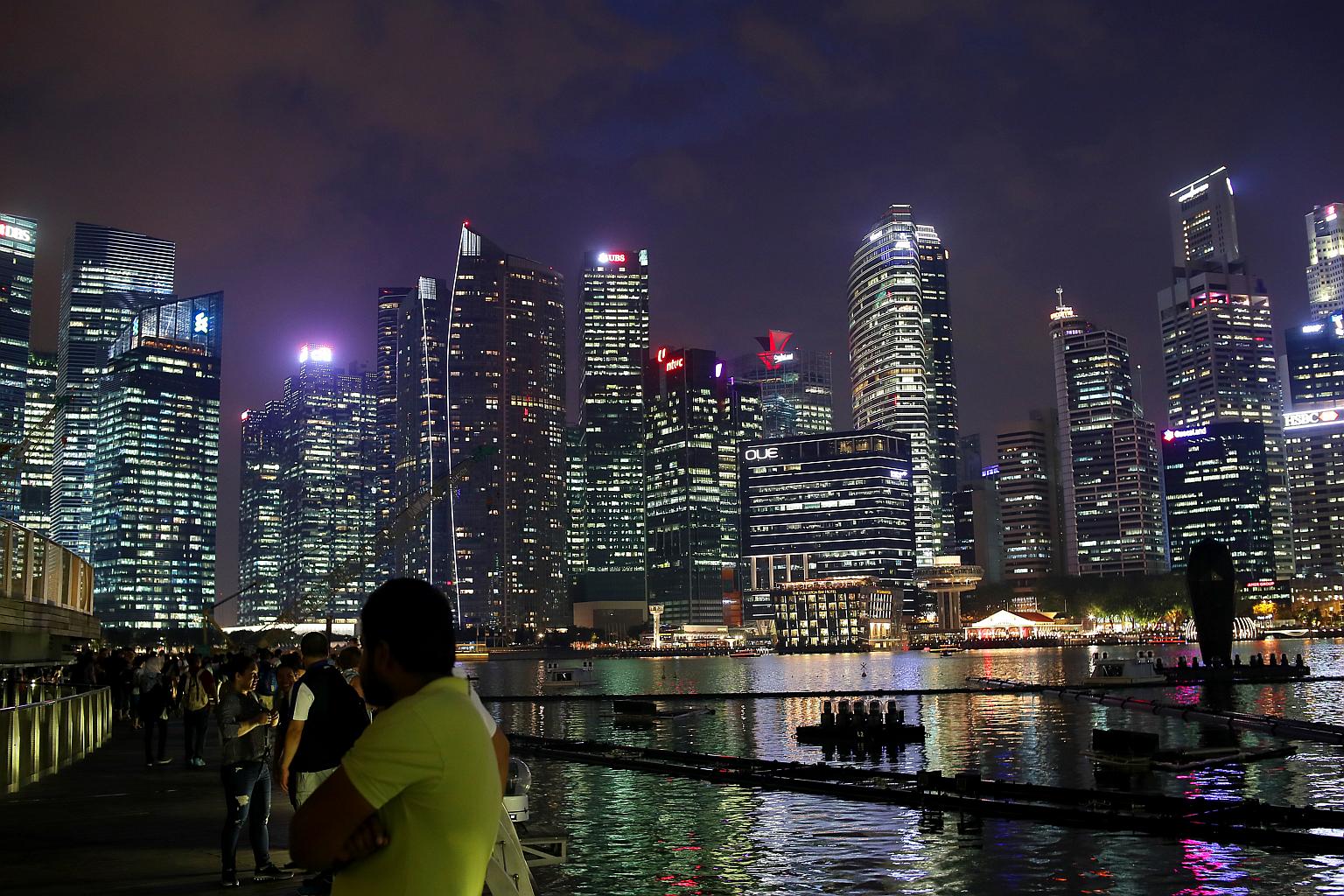Smart fixes can boost Asean urban life: Report
Economic, human development achievable if growth is managed well, says research group
Sign up now: Get ST's newsletters delivered to your inbox

The night scene of Singapore, one of the seven South-east Asian cities are driving the rate of urbanisation.
ST PHOTO: KELVIN CHNG
Luke Anthony Tan
Follow topic:
With South-east Asian cities expanding rapidly, smart solutions could improve the quality of urban life by 10 per cent to 30 per cent, said a report.
For example, intelligent traffic lights and emergency response applications could save around 5,000 lives lost each year because of traffic accidents, fires and murders.
Smart cities could also allow residents to save up to US$16 billion (S$21.8 billion) annually. For instance, sensors that track electricity usage can lead to savings, as energy can be stored more efficiently.
The report, Smart Cities In South-east Asia, is a collaboration between the McKinsey Global Institute (MGI) and the Centre for Liveable Cities in Singapore.
Seven South-east Asian cities are driving the rate of urbanisation: Jakarta, Manila, Yangon, Ho Chi Minh City, Bangkok, Kuala Lumpur and Singapore.
But Mr Jonathan Woetzel, senior partner and leader of McKinsey's Special Cities Initiative, said: "Urbanisation can propel South-east Asia to the level of economic and human development, but only if growth is managed well."
-
Better living
Smart cities in South-east Asia can make improvements to the quality of urban life. An analysis by McKinsey Global Institute estimates the following improvements:
• 260,000 to 270,000 kilotons of greenhouse gas emissions avoidable;
• 1.2 million to 1.5 million new jobs can be created;
• US$9 billion (S$12 billion) to US$16 billion can be cut from cost of living; and
• Six million to eight million man-years can be saved in commuting time.
The report noted that "rapid growth has led to growing pains" and the quality of life for its residents has taken a hit.
Residents, for instance, can spend hours stuck in traffic or be stuffed into overcrowded trains and buses each day, or even struggle to find affordable housing - causing millions to make do with slum dwellings.
Mr Woetzel added that cities need to act quickly to address growing environmental stresses and combat climate change.
Building on previous research, MGI said that smart solutions, such as using greener building materials, could remove up to 270,000 kilotons of greenhouse gas emissions a year. It said there is already a wave of innovation across the region from contributions made by private sector companies.
Still, the report cautions that firms aspiring to be urban solution providers need an intimate understanding of a city to meet the needs of its residents. They may also need to work with governments.
Hence, while MGI believes that it is vital for governments to outline a vision for the future, the rapid pace of technological change means that cities need to consider how to pair smart technologies with complementary policies and investment.
But neither the public nor the private sector can build smart cities alone, the report said.
City governments will have to continue providing many critical services for the people, but they do not have to fund and operate every type of service and infrastructure system.
Mr Mukund Sridhar, partner and leader of McKinsey's infrastructure practice in South-east Asia, said: "Cities facing tough budgetary choices will have to prioritise the practical over the flashiest new technologies.
"Installing digital systems behind the scenes to manage traffic, coordinate networks of hospitals, or cut down on bureaucratic paperwork may yield more impact than highly visible touch screens on the street."
The report was produced as a discussion paper for the World Cities Summit 2018, taking place from tomorrow to Thursday in Singapore at Marina Bay Sands.

